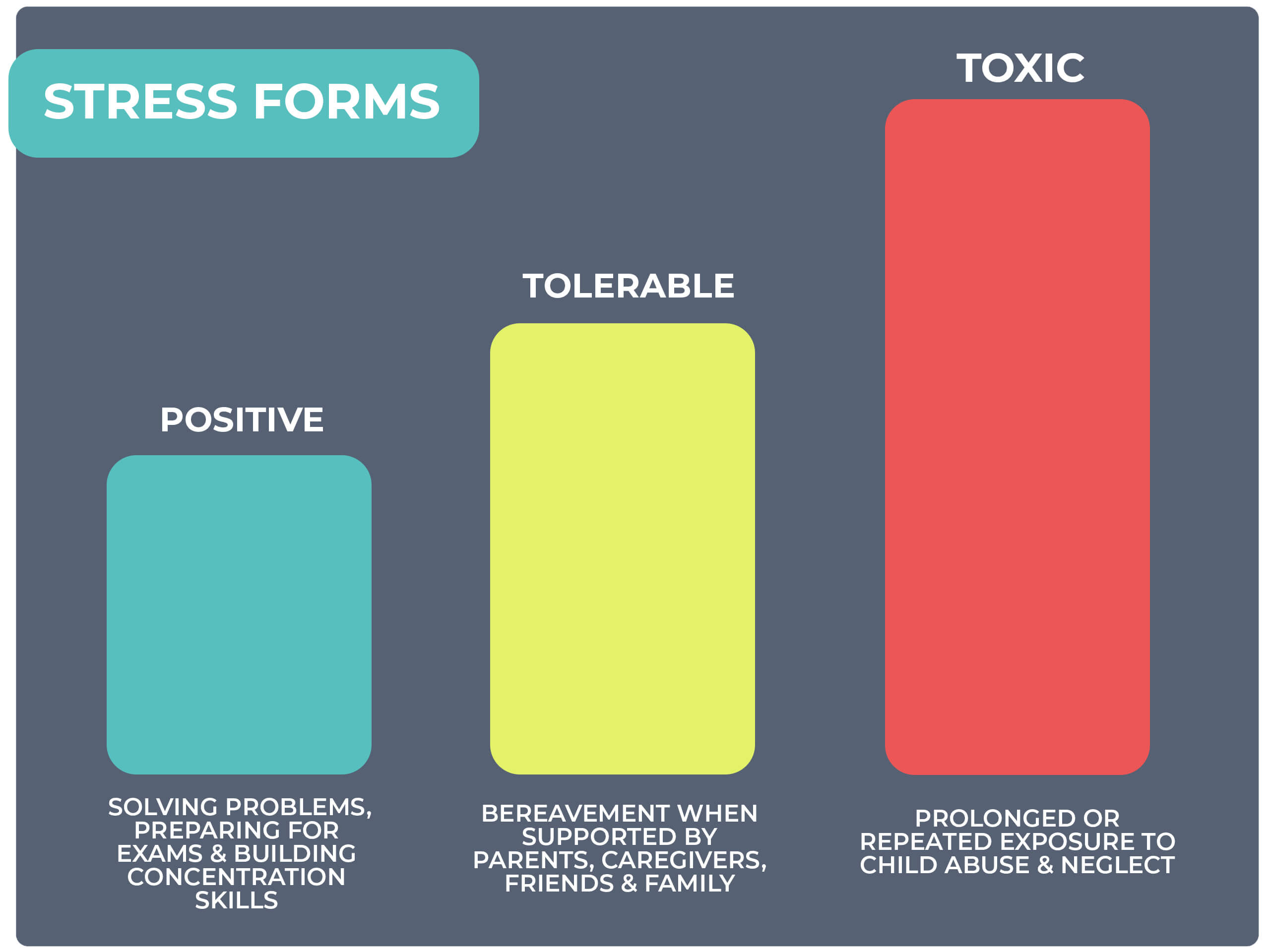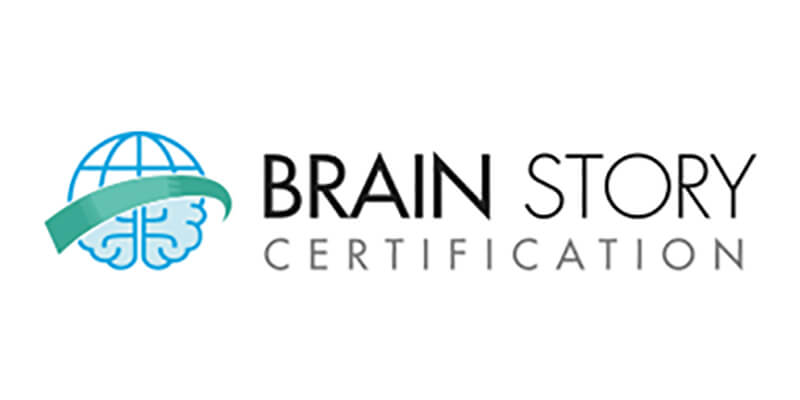Brain Story – Toxic Stress
Everyone experiences stress, and learning how to cope with various forms of stress is a crucial part of child brain development

Some stress can be ‘positive’ and other stress can be ‘tolerable’. But, exposure to prolonged or repeated adverse situations can cause ‘toxic stress’ which can lead to:
- A weakened immune system
- Problems with memory and learning
- A reduced ability to control one’s moods or emotions
- Slower information processing

The effects of toxic stress on a child’s brain and body can be reduced with long-term, consistent help and support such as:
- Soothing and caring for children when they are distressed – this helps children’s brains develop healthy stress management functions (Crowley, 2017).
- Interacting with young children through serve and return rallies, for example by listening and responding to their concerns. This helps build brain architecture and stress management systems (Center on the Developing Child, 2013).
- Helping to ‘buffer’ the effects of tolerable stresses by offering safe, reliable and responsive support to children and young people.
- Staying alert to parents and caregivers who may feel overloaded and helping them manage and alleviate these burdens, professionals can help parents and caregivers reduce the level of stress their child is exposed to.
Childhood outcomes can be improved through
community-based interventions
increased adult-child interaction
supportive relationships

Get Brain Story certified!
The Brain Story Certification course is for anyone seeking a deeper understanding of brain development and its consequences for lifelong health. This self-paced online course is free and open to the public. The course is also designed for professionals seeking certification in a wide range of fields and includes 30 hours of instruction time.
References & Sources
- Center on the Developing Child (2013) Innovating in Early Head Start: Can Reducing Toxic Stress Improve Outcomes for Young Children? [Accessed 8/11/2019].
- Crowley, Kevin (2017) Child Development: a practical introduction. London: SAGE Publications Ltd.
- Diamond, A (2013) Executive Functions Annual Review of Psychology, 64: 135-168.
- Franke H.A (2014) Toxic Stress: Effects, Prevention and Treatment. Children, 1(3): 390–402.
- Kendall-Taylor, N and Stanley, K (2018) Seeing Context through Metaphor: Using Communications Research to Bring a Social Determinants Perspective to Public Thinking about Child Abuse and Neglect. International Journal of Environmental Research and Public Health, 15(1): 8-14.
- National Commission on Domestic and Sexual Violence and Multiple Disadvantage (2019) Breaking Down the Barriers (PDF). [s.l.]: National Commission on Domestic and Sexual Violence and Multiple Disadvantage.
- Siegel, D. J. and Bryson, T. P. (2012) The Whole-Brain Child 12 Revolutionary Strategies to Nurture Your Child’s Developing Mind, Survive Everyday Parenting Struggles, and Help Your Family Thrive. London: Robinson.
- Shonkoff, J.P. et al (2004) Young Children Develop in an Environment of Relationships. Cambridge: Center on the Developing Child, Harvard University.
- Shonkoff, J.P. et al (2008) The Timing and Quality of Early Experiences Combine to Shape Brain Architecture Working Paper 5. Cambridge: Center on the Developing Child, Harvard University.
- Shonkoff, J.P., Boyce, W.T. and McEwen, B.S. (2009) Neuroscience, molecular biology, and the childhood roots of health disparities: building a new framework for health promotion and disease prevention, Journal of the American Medical Association, 301 (21), 2252-2259.
- Shonkoff, J.P. et al (2011) Building the Brain’s “Air Traffic Control” System: How Early Experiences Shape the Development of Executive Function Working Paper 11. Cambridge: Center on the Developing Child, Harvard University.
- Shonkoff, J.P. et al (2014), Excessive Stress Disrupts the Architecture of the Developing Brain Working Paper 3. Cambridge: Center on the Developing Child, Harvard University.
- Shonkoff, J.P. et al (2015) Supportive Relationships and Active Skill-Building Strengthen the Foundations of Resilience Working Paper 13. Cambridge: Center on the Developing Child, Harvard University.
- Shonkoff, J.P. et al (2018) Understanding Motivation: Building the Brain Architecture That Supports Learning, Health, and Community Participation Working Paper 14. Cambridge: Center on the Developing Child, Harvard University.
